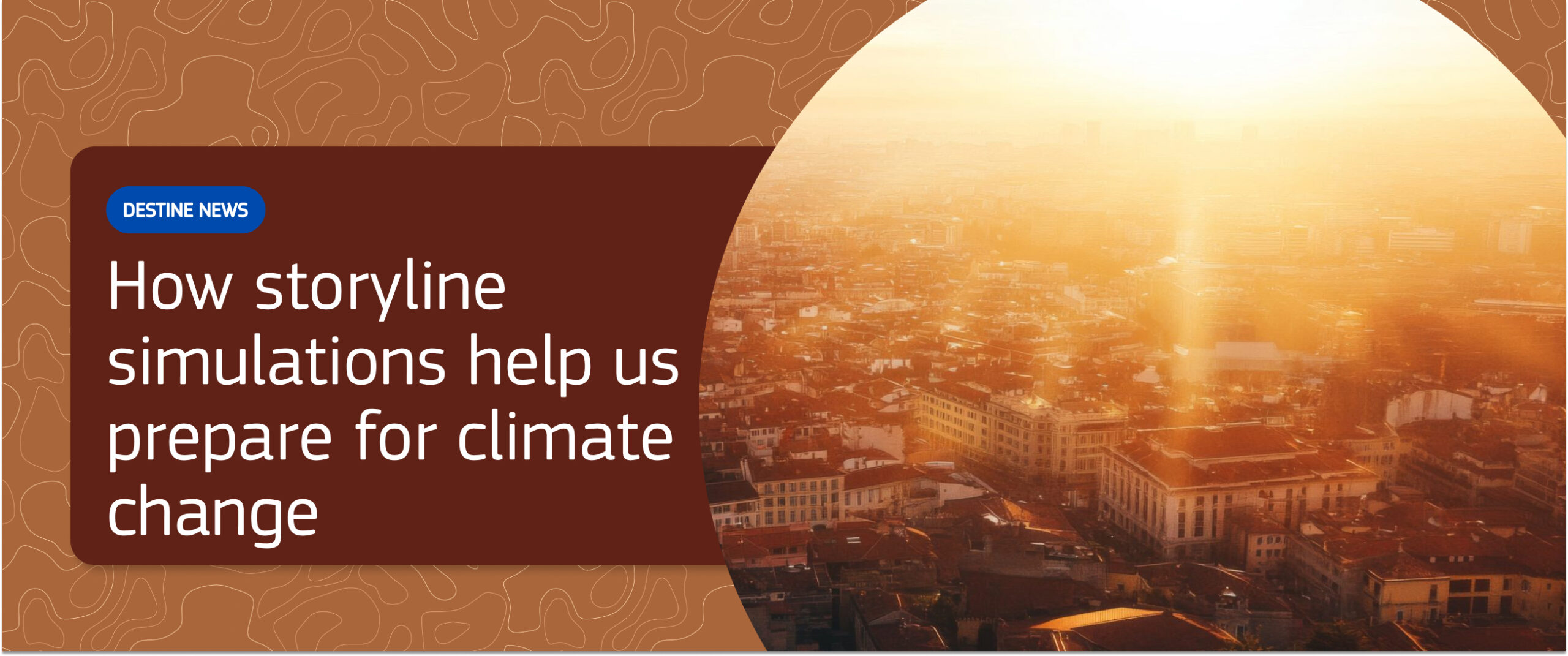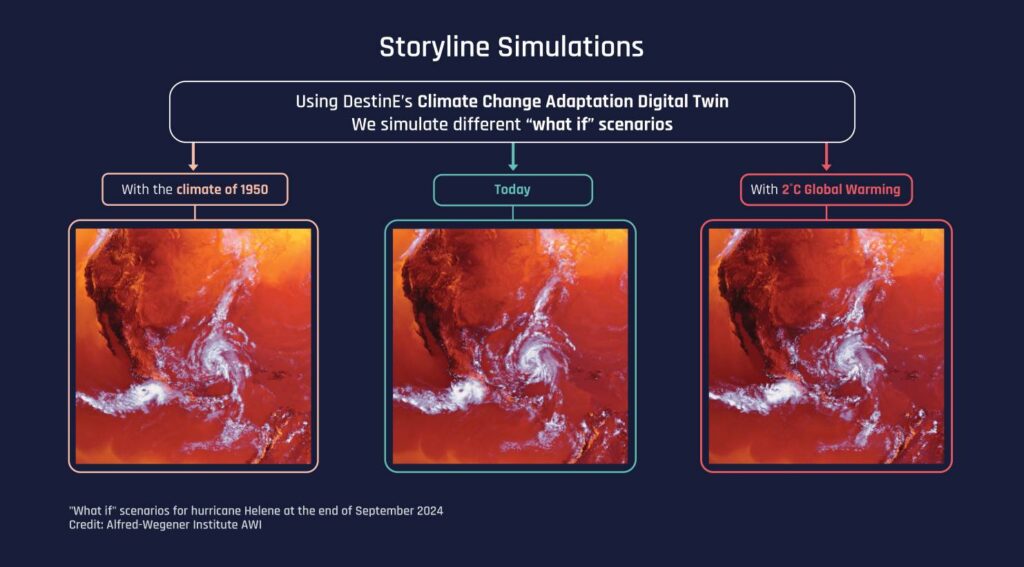Replaying extreme weather: How storyline simulations help us prepare for climate change

NOTE: This is an excerpt of an explainer article that was originally published on the ECMWFEuropean Centre for Medium-Range Weather Forecasts More website.
Imagine being able to take a look at past extreme weather events – a record-breaking heatwave, a devastating flood – and simulate how it would unfold in a different climate. What if Paris’s 2019 heatwave had occurred in a world 2ºC warmer? How would the European flooding in September 2024 behave in a pre-industrial climate? These are no longer hypothetical questions. Scientists working on DestinE are using cutting-edge storyline simulations to answer them.
The Climate Change Adaptation Digital Twin (Climate DT), implemented by ECMWFEuropean Centre for Medium-Range Weather Forecasts More within DestinE, is providing global kilometre-scale storyline simulations that reconstruct extreme weather events under past, present, and future climate conditions. This approach enables researchers, policymakers, local authorities and emergency responders to explore how climate change is reshaping extreme events. By explicitly addressing “what if” questions, these simulations allow us to investigate alternative climate realities. It thus improves our understanding of potential future risks and guides adaptation strategies.

Read the full article to learn more about these simulations and how the research team is making them.